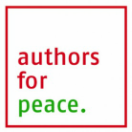A person under surveillance is no longer free; a society under surveillance is no longer a democracy. To maintain any validity, our democratic rights must apply in virtual as in real space.
Martin Amis 10/12/2013 02:50
Edward Snowden is right: the US government has availed itself of the architecture of oppression. And blanket surveillance is very obviously malum per se. It is a furtive abuse of power, and a rank insult to every citizen.
___________________________________________________________________
Joerg Erdmann 12/12/2013 12:40
One should ask himself: What kind of freedom is the NSA defending, if they are the ones who take freedom away from every single citizen of the United States and all people all over the world. Fighting wars for oil, executing people (via drones) without a trial, complete surveilance that every communist secret service would have dreamed of ... is that what democracy looks like?
___________________________________________________________________
T.C. Boyle 13/12/2013 15:17
While we were sleeping, the machines took over the world , just as the sci-fi movies of the past predicted. Governments create and run the machines and the machines collect data, which is always abused. You can’t appear in public without being filmed, can’t visit a webpage without being tracked, can’t go out to dinner in a restaurant without your location being pinpointed. There is no privacy anymore. And there is little we can do about it, other than to opt out. Don’t surf the net, don’t go out on the streets, don’t address the drones by name. Just smash the phone and the computer and go on out back of your house, apartment, cabin or shack and cover yourself in mud. This is called Democratic Choice. It’s also called Privacy.
___________________________________________________________________
Madeleine Thien 13/12/2013 17:13
We entrust our governments with specific powers, but we don’t hand them our lives. However, these strangers are already in our rooms. Should we trust the priorities these strangers will have in ten years, or twenty or fifty? Should we trust that this immense cache of data will not become a commodity, traded to other governments that exist now, or will exist in the future? Democracy, as a system, was intended to prevent the few from deciding, unilaterally, on behalf of the many. State scrutiny of our inner lives is not democracy, for such scrutiny claims our thoughts – the place in which we debate, consider, rage, reflect and be – as state property. In my own life, and in the months I’ve spent in places where Internet censorship is inescapable, I have become acutely aware that freedom of thought requires privacy. Privacy is an irreplaceable refuge that allows us to breathe, to recover and to grow.
Leave a Reply
Edward Snowden is right: the US government has availed itself of the architecture of oppression. And blanket surveillance is very obviously malum per se. It is a furtive abuse of power, and a rank insult to every citizen.
___________________________________________________________________
Joerg Erdmann 12/12/2013 12:40
One should ask himself: What kind of freedom is the NSA defending, if they are the ones who take freedom away from every single citizen of the United States and all people all over the world. Fighting wars for oil, executing people (via drones) without a trial, complete surveilance that every communist secret service would have dreamed of ... is that what democracy looks like?
___________________________________________________________________
T.C. Boyle 13/12/2013 15:17
While we were sleeping, the machines took over the world , just as the sci-fi movies of the past predicted. Governments create and run the machines and the machines collect data, which is always abused. You can’t appear in public without being filmed, can’t visit a webpage without being tracked, can’t go out to dinner in a restaurant without your location being pinpointed. There is no privacy anymore. And there is little we can do about it, other than to opt out. Don’t surf the net, don’t go out on the streets, don’t address the drones by name. Just smash the phone and the computer and go on out back of your house, apartment, cabin or shack and cover yourself in mud. This is called Democratic Choice. It’s also called Privacy.
___________________________________________________________________
Madeleine Thien 13/12/2013 17:13
We entrust our governments with specific powers, but we don’t hand them our lives. However, these strangers are already in our rooms. Should we trust the priorities these strangers will have in ten years, or twenty or fifty? Should we trust that this immense cache of data will not become a commodity, traded to other governments that exist now, or will exist in the future? Democracy, as a system, was intended to prevent the few from deciding, unilaterally, on behalf of the many. State scrutiny of our inner lives is not democracy, for such scrutiny claims our thoughts – the place in which we debate, consider, rage, reflect and be – as state property. In my own life, and in the months I’ve spent in places where Internet censorship is inescapable, I have become acutely aware that freedom of thought requires privacy. Privacy is an irreplaceable refuge that allows us to breathe, to recover and to grow.
Leave a Reply

 RSS Feed
RSS Feed
